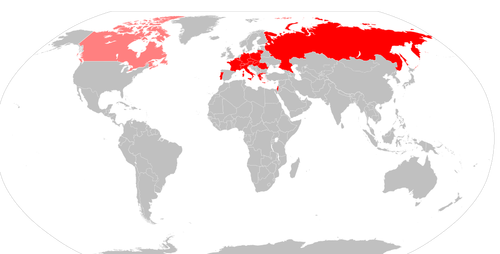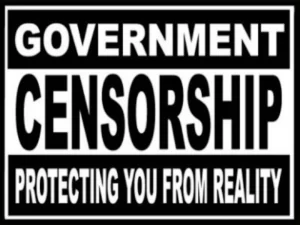While the focus of the latest chapter in the fight for free speech has shifted to smear tactics employed against Elon Musk, a more concerning ramification of his tentative acquisition of Twitter is that it may serve as a catalyst for the dissolution of online anonymity and free speech protections.
Musk himself hasn’t done much to quash that concern. In response to the European Commission’s passage of the Digital Services Act, Musk clarified that despite his ardent advocacy of free speech even he had a limit on what would constitute as such. According to Musk what he means is “By ‘free speech’, I simply mean that which matches the law.” For lawmakers that view Musk’s take over of Twitter as a threat to their hegemony over the quasi-public square that has such influence dictating the hegemony of the political economy, the parameters Musk has placed on the “free speech” he champions gives them hope they’ll be able to use the acquisition to reign dissent in even further by passing reactionary legislation that may result in even great consequences to those challenging accepted narratives or otherwise committing thought crimes.
The House of Representatives’ passage of House Resolution 1125 – Condemning Rising Antisemitism offers a purview into the looming legal framework that will combat attempts to loosen the stranglehold government and its conduits in big tech have on public opinion. Sponsored by Democratic House Representative for Florida’s 23rd Congressional District Debbie Wasserman Shultz, HR 1125 uses the political support against antisemitism as a veil to enhance online surveillance. Citing increases in “antisemitic language, conspiracy theories, and hatred has increased on multiple social media platforms—from Facebook and Instagram to Twitter and TikTok.” the resolution exploits the tragedy of the most recent high profile mass shooting that occurred in Buffalo, NY, in which 911 operators hung up the calls of distressed victims of the attack.
Wasserman Schultz’s sponsorship of the bill offered a glimpse of the extent to which lawmakers hope to change the landscape of existing online speech protections. Namely, the former DNC chair who presided over the 2016 Florida Democratic Primary which resulted in extensive lawsuits alleging election fraud hopes that the Condemning Rising Antisemitism resolution will be the first step toward the ultimate goal of repealing Section 230 of the Communications Decency Act. Ironically, that goal is a political aim that the ardent Democrat shares with her party’s moral enemy Donald Trump.
However, Section 230 has existed for as long as consumer access to the Internet has in essence and is integral to the ability for websites to operate freely online without being held liable for content posted on their sites by users. Eliminating that protection would be gravely consequential in consolidating accepted online speech in the hands of large-scale websites and media platforms that share similar interests with the lawmakers whose legislation affects them.
Additionally, Wasserman Shultz used the platform that sponsorship of HR 1125 gave her to envisage the resolution setting the tone for gun control and other agendas that can be parlayed by the disingenuous notion of combating online extremism. By characterizing those guilty of wrong thinking as radicals, if not domestic terrorists, the power is given to the government under HR 1125 shows how the resolution could simply attach itself to any issue in the hopes of achieving an ulterior motive in the event it becomes law. The malleability of this approach highlights how little HR 1125 is actually about “combating rising antisemitism.”
Despite the Pandora’s box that HR 1125 opens in calling for greater online surveillance and censorship, the resolution passed the House of Representatives all but unanimously by a vote of 420 to 1. The lone nay vote was cast by Republican House Representative for Kentucky’s 4th District Thomas Massie. The Kentucky representative has already been ostracized by most members of Congress for his positions against vaccination mandates and other pandemic response efforts. While his vote on HR 1125 won’t do much to damage the hollow reputation cultivated for him by his opponents, the fact that he has nothing left to lose in that vein puts Massie in a position to use his iconoclastic rhetoric to champion the protection of American’s constitutional right to free speech. Massie justified his vote succinctly, stating “This bill promoted internet censorship and violations of the 1st amendment.”
The United States remains one of the few western nations that haven’t made antisemitic rhetoric like Holocaust denial a formal crime. Israel and 16 other European nations including Russia have passed legislation making Holocaust denial a crime, with Spain, Scandinavia, the United Kingdom, Ireland, Iceland, Ukraine, Belarus, Estonia, Latvia, and the northernmost nations of the Balkan peninsula standing as exceptions. However, those laws explicitly address the specific issue of Holocaust denial and nations who don’t have any on their books have legislated other laws aimed at making speech and actions deemed as antisemitic illegal. For instance, many states have outlawed organized boycotts of Israel in the United States under the guise of “fighting antisemitism” with governors like Florida’s Ron DeSantis and Texas’ Greg Abbott leading that charge.

The popular support against antisemitism makes opposition to legislation like HR 1125 a difficult position for lawmakers whose concerns lie with the integrity of the constitution to advance. With that at their disposal, advocates of greater initiatives to infringe upon rights to free speech online aim to install Orwellian agencies like the recently paused Disinformation Governance Board within the Biden Administration’s Department of Homeland Security. HR 1125 would implement a “cross-party Inter-parliamentary Task Force to Combat Online Antisemitism to help craft thoughtful global initiatives designed to address online antisemitism.” which signifies Congress’ willingness to cede the sovereignty afford to it by the constitution in favor of globalist governance.
Despite the trajectory the United States had headed in, it’s still been able to separate itself from European and third world nations that don’t guarantee any protection to free speech. Even at its worst, the political climate in the United States provides more freedom from legal punishment to those who express opinions that are rejected a politically incorrect. However, the changing landscape of free speech on social media platforms may be the straw that breaks the camels back in this sense by ultimately providing the Ministry of Truth with the cannon fodder it needs to shoot down those existing protections. The increasing reliance on social media platforms as the bastion of free speech empowers that effort, meaning that free speech advocates supporting magnates like Musk ironically may ultimately be playing into the hands of the censors.

